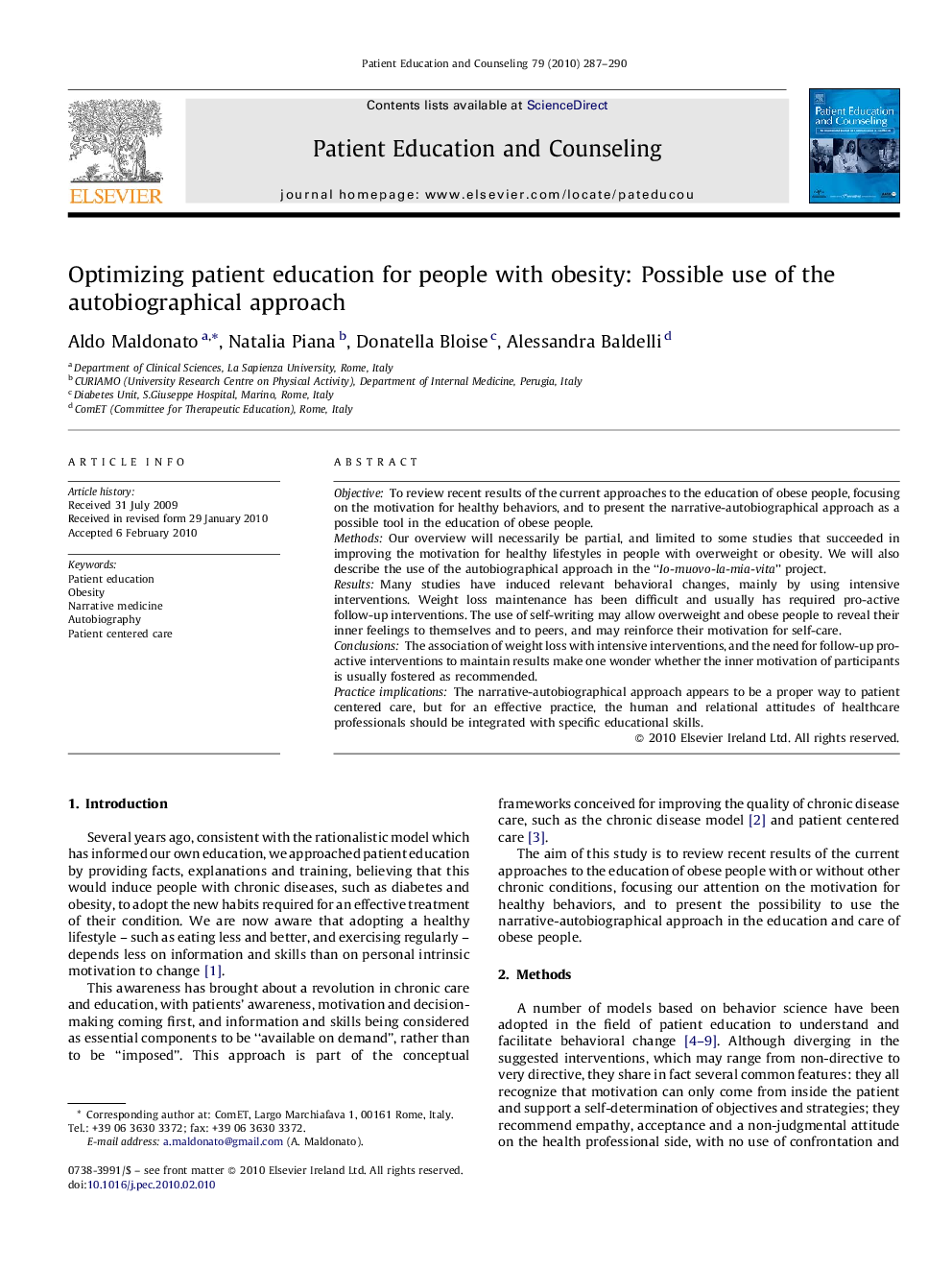| Article ID | Journal | Published Year | Pages | File Type |
|---|---|---|---|---|
| 3814922 | Patient Education and Counseling | 2010 | 4 Pages |
ObjectiveTo review recent results of the current approaches to the education of obese people, focusing on the motivation for healthy behaviors, and to present the narrative-autobiographical approach as a possible tool in the education of obese people.MethodsOur overview will necessarily be partial, and limited to some studies that succeeded in improving the motivation for healthy lifestyles in people with overweight or obesity. We will also describe the use of the autobiographical approach in the “Io-muovo-la-mia-vita” project.ResultsMany studies have induced relevant behavioral changes, mainly by using intensive interventions. Weight loss maintenance has been difficult and usually has required pro-active follow-up interventions. The use of self-writing may allow overweight and obese people to reveal their inner feelings to themselves and to peers, and may reinforce their motivation for self-care.ConclusionsThe association of weight loss with intensive interventions, and the need for follow-up pro-active interventions to maintain results make one wonder whether the inner motivation of participants is usually fostered as recommended.Practice implicationsThe narrative-autobiographical approach appears to be a proper way to patient centered care, but for an effective practice, the human and relational attitudes of healthcare professionals should be integrated with specific educational skills.
